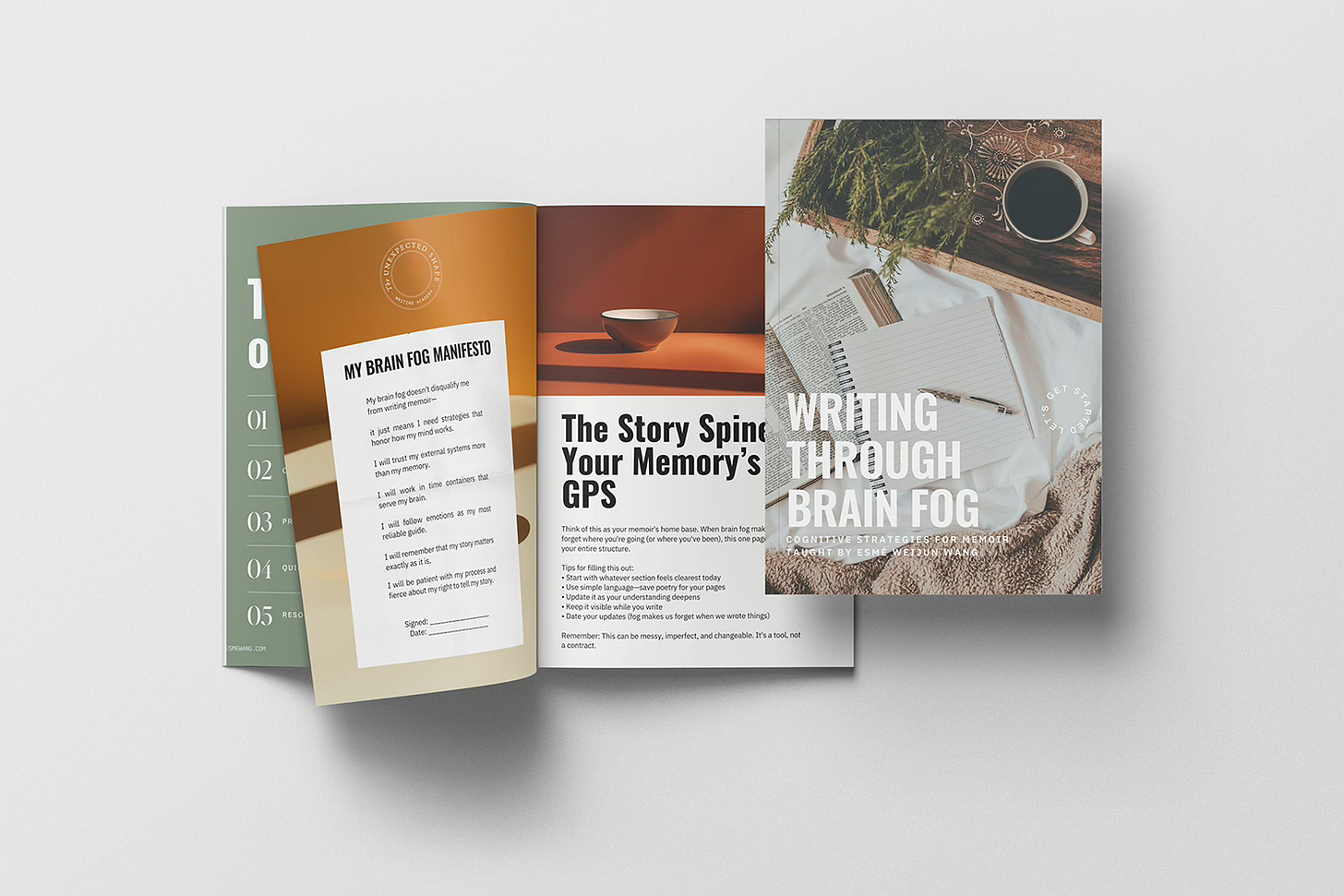From PBS to Publishing—let's talk
"GHOSTWRITER! Word."
I used to be obsessed with “Ghostwriter” in elementary school.
Picture this: no school, bare feet on the rust-hued carpet, a margarine-and-pork-floss sandwich in my hands, and me parked in front of our old tube TV for my weekly dose of “Ghostwriter” before diving into whatever Lurlene McDaniel mystery I'd checked out from the library that week (the Lurlene-McDaniel-reader-to-40-something-in-long-term-therapy pipeline is a strong one, but that’s for another edition).
At the time, I thought I was just in it for the mystery-solving drama and that glowing, swirling ghost who helped kids crack cases through the power of words...
But lately? I'm starting to think it shaped more of my grown-up approach to writing than I gave it credit for.
Like... “Ghostwriter” was secretly a masterclass in writing through cognitive challenges.
Let me explain.
Here's what I realized...
Every episode of “Ghostwriter” followed the same structure when the kids' minds went blank or they felt overwhelmed:
🧠 Slow down and breathe.
👀 Look for clues in fragments—even partial words mattered.
💬 Ask for help when your brain isn't cooperating.
📓 Write it down, even if it's messy or incomplete.
🧩 Trust that the pieces will come together, even when you can't see the whole picture.
Honestly? That's my Writing Through Brain Fog process in a nutshell.
It's not about forcing your way through the cognitive murk or waiting for a "clear" day that might never come. It's about working with your brain's limitations, gathering the fragments that are available to you, and trusting that meaning will emerge from what feels like scattered pieces.
So What Does This Mean for You?
If you're:
➡️ frustrated by the gap between your writing ambitions and your cognitive reality
➡️ craving a sustainable way to create despite brain fog, chronic illness, or neurodivergence
➡️ spinning your wheels waiting for the "perfect" mental state to start writing
...maybe it's time to take a cue from those brilliant Brooklyn kids and work with the clues your brain can give you, rather than mourning the ones it can't.
Because Ghostwriter, but make it adaptive writing strategy. 😉
Want me to help you turn your cognitive fragments into compelling prose?
Here's what we're doing inside Writing Through Brain Fog:
1️⃣ Fragment Collection Techniques – Learn to capture and work with partial thoughts, scattered memories, and incomplete ideas when your brain won't cooperate.
2️⃣ Energy-Matched Writing Methods – Discover how to match your writing tasks to your cognitive capacity on any given day, so you're always making progress.
3️⃣ The Fog Navigation Framework – My step-by-step system for organizing and developing your writing when linear thinking feels impossible.
4️⃣ Adaptive Revision Strategies – Because editing through brain fog requires completely different approaches than traditional revision methods.
You'll walk away with:
✨ A sustainable writing practice that honors your cognitive realities rather than fighting them
✨ Concrete techniques for capturing and developing ideas when your brain feels scattered
✨ The confidence to trust your creative process, even when it doesn't look like anyone else's
I’ve also been diligently working all week on a beautiful workbook that you can take through the class and the process, again and again.
And you don't have to figure it out solo. That's what I'm here for.
Click here to join Writing Through Brain Fog: Cognitive Strategies for Memoir.
Because hey—Esmé circa 1992 may have been watching the kids of “Ghostwriter” solve puzzles that the grown-ups around them couldn't…
...but she was onto something about the power of working with mysterious, non-linear processes. 🧠✨
With care,
P.S. The workshop includes lifetime access to the recording, so if your brain needs to process the information in pieces (like mine does), you can revisit it whenever you're ready. No pressure, just support.






My college advisor in the English department was a head writer for this show, and it was always a fave when I was younger. Love that you're using it as a teaching tool! And particularly appreciate the idea of being adaptive in the process.
I am mad I never heard of this show, but let's give more damn love to programs and movies that inspired millennials to be literary. I don't know where I would be without Matilda and Harriet the Spy.